Nathuram Godse remains one of the most controversial figures in Indian history. His assassination of Mahatma Gandhi on January 30, 1948, shook the foundation of newly independent India and sparked intense debates about his motives and the ideologies that drove him. This blog post aims to provide an authentic and comprehensive account of Nathuram Godse’s life, rise, and fall, while analyzing the reasons behind his drastic actions. By presenting the exact scenario of that era and various ideologies, we seek to avoid bias and allow readers to form their own opinions on whether Godse’s act was justified or not.
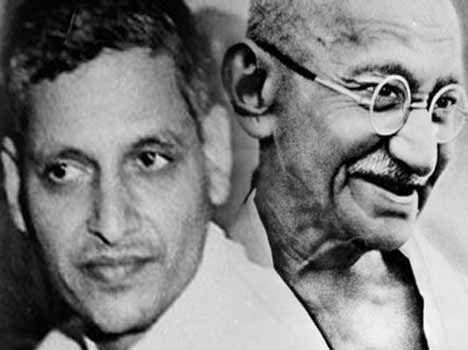
In This Post
ToggleNathuram Godse: Early Life and Influences
Nathhuram Vinayak Godse was born on May 19, 1910, in a small town in Maharashtra. His early life was marked by a series of personal and familial challenges. Born into a Brahmin family, Godse’s upbringing was deeply rooted in Hindu traditions. He was initially named Ramachandra, but due to superstitious beliefs surrounding the deaths of his previous siblings, his parents renamed him Nathuram, believing it would ward off misfortune.Godse’s education was typical for a young Brahmin boy of that time, but his academic journey was disrupted by his family’s financial difficulties. Despite this, his intellectual curiosity led him to deeply explore Hindu scriptures and nationalist literature, which profoundly shaped his ideological leanings.
Political Climate in Pre-Independence and Post-Independence India
To understand Nathuram Godse’s rise, it is crucial to examine the political climate of India during the early 20th century. The Indian independence movement was gaining momentum, led primarily by the Indian National Congress (INC) under the leadership of Mahatma Gandhi. Gandhi’s philosophy of non-violence and civil disobedience galvanized millions across the nation.However, not all agreed with Gandhi’s methods. The political landscape was diverse, with several ideologies vying for prominence. The Hindu nationalist movement, represented by organizations like the Rashtriya Swayamsevak Sangh (RSS) and the Hindu Mahasabha, advocated for a strong Hindu identity and were critical of Gandhi’s perceived appeasement of Muslims.
Nathuram Godse’s Ideological Evolution
Nathuram Godse’s involvement with the RSS and later the Hindu Mahasabha was pivotal in shaping his ideological stance. Influenced by the works of V.D. Savarkar, a prominent Hindu nationalist leader, Godse developed a vision of India as a Hindu Rashtra. Savarkar’s writings on Hindutva resonated with Godse, who saw in them a blueprint for preserving Hindu culture and values in an independent India.Godse’s ideological evolution was marked by a growing disillusionment with Gandhi’s policies. He perceived Gandhi’s advocacy for Hindu-Muslim unity and his support for the Partition of India as betrayals of Hindu interests. The culmination of these beliefs was Godse’s conviction that Gandhi’s removal was necessary to protect and preserve Hindu civilization.
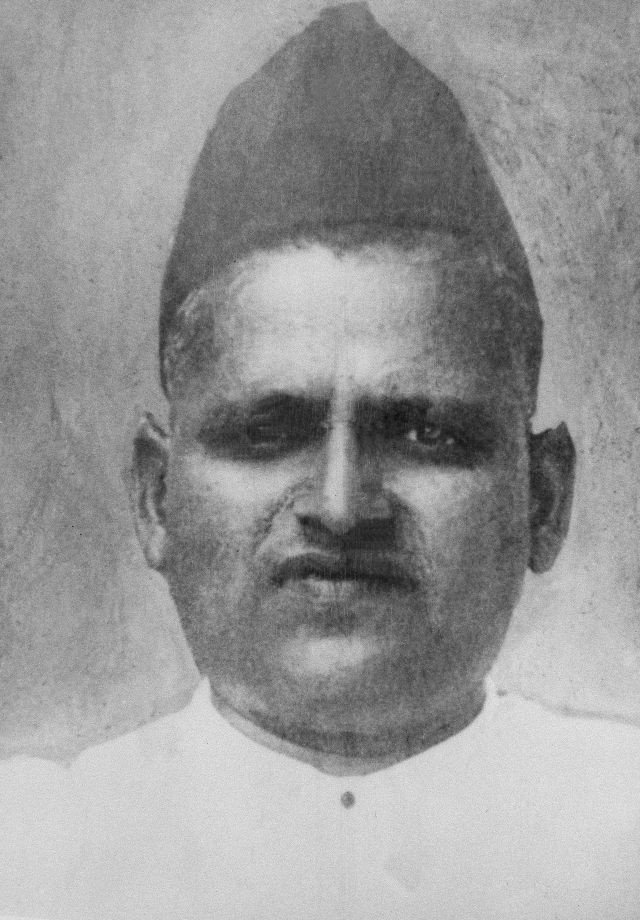
The Assassination of Mahatma Gandhi
The assassination of Mahatma Gandhi was a meticulously planned act, carried out on January 30, 1948. Godse, along with his co-conspirators, had been planning the assassination for several months. On the day of the assassination, Godse approached Gandhi during his evening prayer meeting in Delhi. As Gandhi walked towards the prayer ground, Godse bowed, pulled out a Beretta M1934 semi-automatic pistol, and fired three shots at point-blank range, killing Gandhi instantly.The immediate aftermath of the assassination was chaotic. Godse was apprehended on the spot, and his arrest triggered widespread outrage and mourning across the nation. The assassination not only shocked India but also the entire world, as Gandhi was revered globally for his philosophy of non-violence and his role in leading India to independence.
The Trial and Conviction
Nathuram Godse’s trial was one of the most sensational and closely watched legal proceedings in Indian history. The trial began on May 27, 1948, in the Special Court in Red Fort, Delhi. The prosecution presented a strong case against Godse and his co-conspirators, detailing the meticulous planning and execution of the assassination.During the trial, Godse took full responsibility for the assassination, asserting that he acted alone in planning and executing the murder. His defense was not one of denial but of justification.
Godse argued that he was compelled by his love for India and his belief that Gandhi’s policies were detrimental to the nation’s future.Godse’s final statement in court was a detailed exposition of his motivations. He articulated his deep-seated grievances against Gandhi’s actions, particularly his perceived favoritism towards Muslims and his role in the Partition. Godse claimed that Gandhi’s continued influence would have led to the disintegration of Hindu culture and values. Despite his passionate defense, the court found Godse guilty of murder and sentenced him to death.
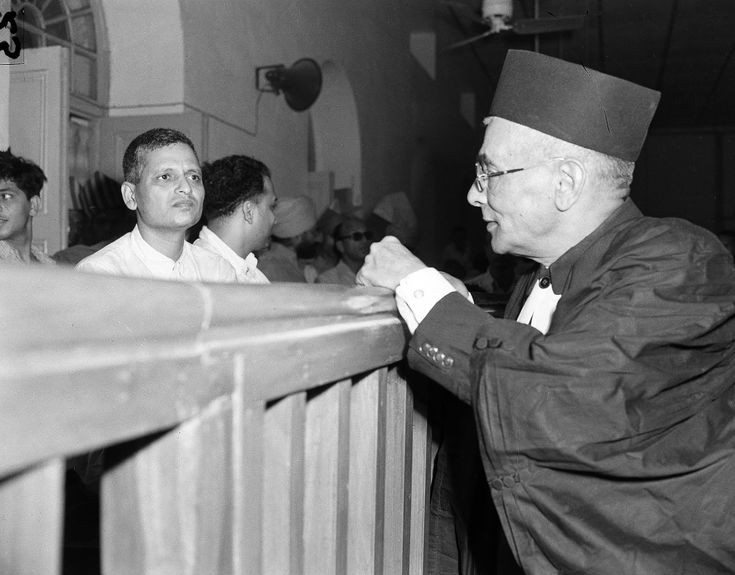
Execution and Last Words
Nathuram Godse was executed on November 15, 1949, at Ambala Jail. Leading up to his execution, Godse remained steadfast in his beliefs. His last words were a reiteration of his motivations and a plea for understanding his perspective. According to historical records, Godse expressed no remorse for his actions, maintaining that he had acted in the best interests of India.Godse’s final message highlighted his unwavering commitment to his cause and his belief that history would eventually vindicate his actions. His execution was carried out in the presence of a select group of officials, and his last rites were performed according to Hindu traditions.
Legacy and Controversies
The assassination of Mahatma Gandhi had immediate and far-reaching consequences for India. In the short term, it led to a crackdown on Hindu nationalist organizations, with the RSS and Hindu Mahasabha facing significant government scrutiny. The assassination also deepened communal tensions and underscored the fragility of India’s newly gained independence.In the long term, Nathuram Godse’s legacy has remained a contentious issue. While he is reviled by many for his act of violence against a revered leader, there are sections of Indian society that view him as a patriot who acted out of a misguided sense of duty. The debates surrounding Godse’s motives and actions continue to this day, reflecting the complex and often polarizing nature of his legacy.
Diverse Perspectives on Nathuram Godse
Historians and scholars have offered varied interpretations of Nathuram Godse’s actions. Some view him as a fanatic driven by blind hatred, while others argue that his actions were a tragic consequence of the ideological conflicts of the time. Books like “Freedom at Midnight” by Larry Collins and Dominique Lapierre and “Gandhi and His Assassin” by Dhirendra Jha provide in-depth analyses of the assassination and its historical context.Public opinion on Godse has also evolved over the decades. Media portrayals, including films and documentaries, have contributed to shaping his image. These portrayals range from demonizi secng him as a cold-blooded murderer to presenting a more nuanced view of his motivations.
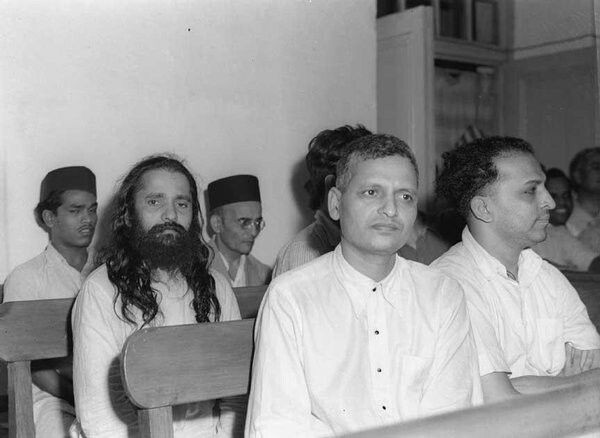
Reflecting on Historical Contexts and Ideologies
To fully understand Nathuram Godse’s actions, it is essential to consider the broader historical and ideological context of the time. The early 20th century was a period of intense political and social upheaval in India. The struggle for independence brought together diverse ideologies, each with its vision for the nation’s future.
Gandhi’s philosophy of non-violence and inclusive nationalism stood in stark contrast to the Hindu nationalist vision espoused by Godse and his peers. This clash of ideologies created a charged atmosphere where extreme actions, like the assassination of Gandhi, became conceivable.Examining these historical contexts and ideologies helps in appreciating the complexities of the period. It underscores the importance of understanding history from multiple perspectives, rather than reducing it to a binary of right and wrong.
Conclusion
Nathuram Godse’s life and actions offer a window into one of the most turbulent periods in Indian history.
His assassination of Mahatma Gandhi remains a pivotal event that continues to evoke strong emotions and debates. By presenting the facts and various perspectives surrounding Godse’s rise, fall, and last words, this blog post aims to provide a comprehensive and balanced understanding of a complex historical figure.
Ultimately, it is up to the readers to draw their own conclusions about Nathuram Godse’s actions. History is often written with the benefit of hindsight, but it is through understanding the motivations and contexts of individuals like Godse that we can gain a deeper insight into the forces that have shaped our world. Comment down below your valuable views and conclusions on nathuram godse .
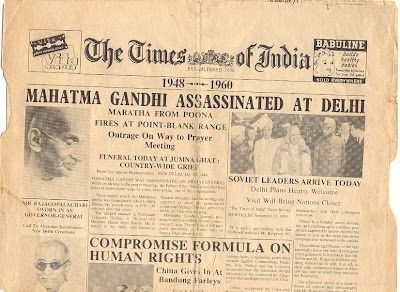
FAQs
Nathuram Godse’s main grievances against Mahatma Gandhi centered on what he perceived as Gandhi’s favoritism towards Muslims and his role in the Partition of India. Godse believed that Gandhi’s policies undermined Hindu interests and that his advocacy for Hindu-Muslim unity compromised the integrity of the Hindu community. Godse also felt that Gandhi’s methods of non-violence and appeasement would weaken India’s stance against external threats.
In his court statements, Nathuram Godse justified the assassination of Gandhi by arguing that it was a necessary action to save India from further disintegration and to protect Hindu interests. Godse contended that Gandhi’s continued influence would lead to the erosion of Hindu culture and values, and that his policies were harmful to the newly independent nation. Godse saw himself as a patriot who acted in the best interests of India’s future.
The reaction of the Indian government and the public to Godse’s actions was one of shock, outrage, and profound grief. The assassination of Mahatma Gandhi, a revered leader and the father of the nation, was met with widespread condemnation. The government took immediate action to arrest Godse and his co-conspirators, leading to a high-profile trial. The public mourned Gandhi’s death deeply, and there were significant repercussions for Hindu nationalist organizations, which faced increased scrutiny and crackdowns.
Nathuram Godse has been portrayed in various ways in Indian media and literature. In many portrayals, he is depicted as a fanatic and a murderer who disrupted the peace and unity of India. However, there have also been more nuanced portrayals that seek to understand his motivations and the historical context of his actions. Films, documentaries, and books have explored different facets of his life, with some attempting to present a balanced view of his ideological stance and others emphasizing the moral and ethical implications of his actions.

I really like reading through a post that can make men and women think. Also, thank you for allowing me to comment!